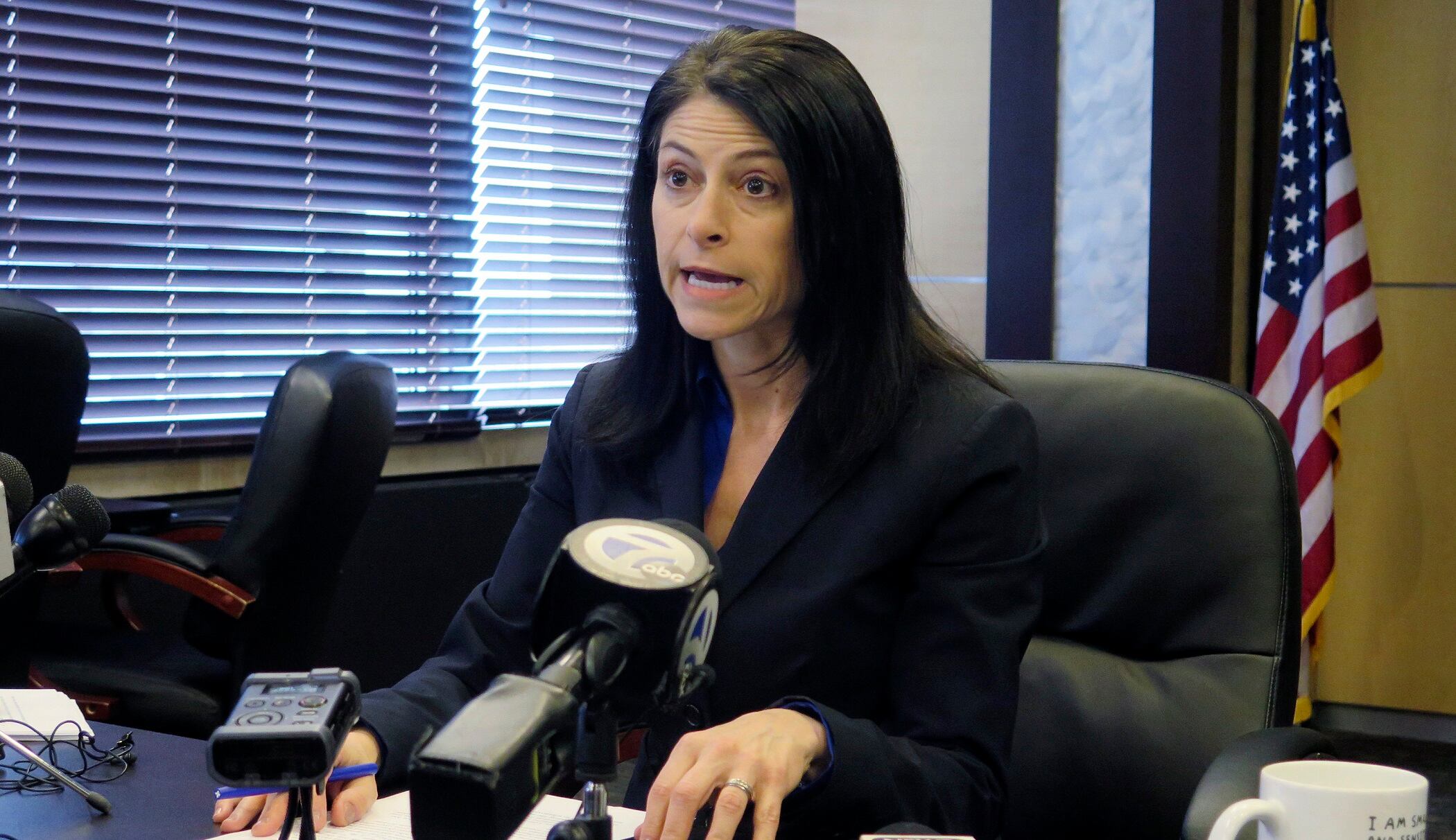Michigan's attorney general apologized Wednesday and said she drank too much booze before last month's Michigan-Michigan State football game.
“I might be a terrible bartender,” Dana Nessel said.
Nessel told her story on Facebook, even posting a photo of herself slumped in a seat at Spartan Stadium on Oct. 30 with a Michigan hat covering her face.
Nessel, a Democrat, said she had two Bloody Marys on an empty stomach while attending a tailgate party. She joked that “as long as you put enough vegetables in them, it's practically a salad.”
“I proceeded to go to the game ... and started to feel ill. I laid low for a while, but my friends recommended that I leave so as to prevent me from vomiting on any of my constituents,” Nessel wrote.
She said she was assisted in getting up the stairs and then someone “grabbed a wheelchair so as to prevent me from stumbling in the parking lot.” Nessel said she was driven home.
“I am human. Sometimes I screw up," she said. "This was definitely one of those times. My apologies to the entire state of Michigan for this mishap, but especially that Michigan fan sitting behind me. Some things you can’t un-see.”
Nessel has said she is running for reelection in 2022.









